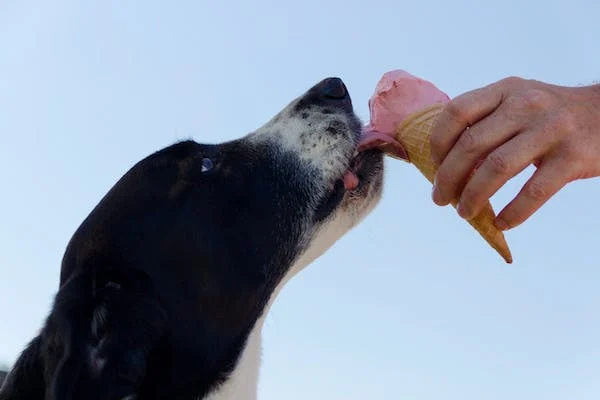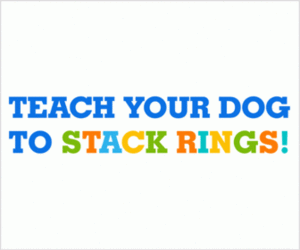Table of Contents:
- Introduction
- The Joy of Dog Ownership: A Fulfilling Experience
- Preparing for Dog Ownership: Budgeting Wisely
- Initial Costs: Adoption fees, microchipping, neutering/spaying, and basic supplies
- Ongoing Expenses: Food, healthcare, insurance, grooming, toys, and accessories
- Creating an Emergency Fund: Planning for unforeseen medical expenses
- Selecting the Right Dog for Your Lifestyle
- Considering Size and Living Space: Choosing a dog breed that fits your home
- Energy Levels and Activity: Matching your lifestyle with your furry companion
- Temperament and Compatibility: Finding a dog that aligns with your family dynamics
- Pet-Proofing Your Home: Creating a Safe Environment
- Identifying and Removing Hazards: Ensuring a safe space for your dog
- Securing the Home: Installing gates and designated dog-friendly areas
- Nutrition and Feeding Guidelines: Keeping Your Dog Healthy
- Choosing Quality Dog Food: Providing a balanced and nutritious diet
- Establishing a Feeding Schedule: Maintaining proper digestion and portion control
- Treating with Care: Using treats as rewards and occasional snacks
- Exercise and Mental Stimulation: Keeping Your Dog Active and Happy
- The Importance of Daily Walks: Keeping your dog physically fit
- Interactive Play and Training: Strengthening the bond and preventing behavioral issues
- Healthcare and Regular Check-ups: Prioritizing Your Dog’s Well-being
- Veterinary Visits: Regular check-ups and vaccinations
- Preventive Care: Flea and tick control, heartworm prevention, and dental care
- Grooming and Hygiene: Keeping Your Dog Looking and Feeling Great
- Coat and Skin Care: Brushing, bathing, and maintaining a healthy coat
- Nail Trimming and Ear Cleaning: Proper techniques for essential grooming
- Socialization and Training: Building a Well-Behaved Companion
- Early Socialization: Introducing your dog to new people, animals, and environments
- Positive Reinforcement Training: Using positive methods to encourage good behavior
- Understanding Canine Behavior: Decoding Your Dog’s Emotions
- Interpreting Body Language: Recognizing your dog’s feelings and needs
- Addressing Common Behavioral Issues: Managing separation anxiety, aggression, and excessive barking
- Traveling and Pet-Friendly Activities: Exploring Adventures with Your Dog
- Dog-Friendly Destinations: Enjoying outings and vacations with your furry companion
- Conclusion
- The Ultimate Journey: Creating a Happy and Fulfilling Life with Your Canine Companion
- Frequently Asked Questions

Introduction:
Bringing a dog into your life can be an immensely rewarding experience, but it also comes with significant responsibilities. If you’re considering adding a furry friend to your family in the UK, this comprehensive guide is here to help. From budgeting for dog ownership to essential care tips, we’ll cover everything you need to know to ensure a happy and healthy life for your canine companion. Whether you’re a first-time dog owner or seeking to enhance your existing pet-parenting skills, read on to discover how to provide your dog with the love, attention, and care they deserve.
I. Preparing for Dog Ownership: Budgeting Wisely
- Initial Costs: Adoption fees, microchipping, neutering/spaying, and basic supplies.
- Ongoing Expenses: Food, healthcare, insurance, grooming, toys, and accessories.
- Emergency Fund: Setting aside funds for unforeseen medical emergencies or other unexpected costs.
II. Selecting the Right Dog for Your Lifestyle
- Size and Space: Consider the size of your living space and choose a dog breed that fits comfortably.
- Energy Level: Assess your lifestyle and activity level to match with a dog that shares similar energy levels.
- Temperament and Compatibility: Research breeds and individual personalities to find a dog that aligns with your lifestyle and family dynamics.
III. Pet-Proofing Your Home
- Remove Hazards: Identify and eliminate potential dangers such as toxic plants and chemicals.
- Secure the Space: Install gates and designated dog-friendly areas to ensure a safe environment.
IV. Nutrition and Feeding Guidelines
- Quality Dog Food: Provide balanced and nutritious food to support your dog’s overall health.
- Feeding Schedule: Establish a regular routine to maintain proper digestion and avoid overfeeding.
- Treats and Snacks: Use treats as rewards and occasional snacks, being mindful of portion control.
V. Exercise and Mental Stimulation
- Daily Walks and Physical Activity: Regular exercise to keep your dog fit and mentally stimulated.
- Interactive Play and Training: Engage in interactive play and training sessions to strengthen the bond and prevent behavioral issues.
VI. Healthcare and Regular Check-ups
- Veterinary Visits: Regular check-ups and vaccinations for your dog’s well-being.
- Preventive Care: Discuss flea and tick control, heartworm prevention, and dental care.
VII. Grooming and Hygiene
- Coat and Skin Care: Brushing, bathing, and maintaining a healthy coat.
- Nail Trimming and Ear Cleaning: Proper techniques for nail and ear care.
VIII. Socialization and Training
- Early Socialization: Introduce your dog to various people, animals, and environments to build confidence.
- Positive Reinforcement Training: Utilize positive methods to reinforce good behavior and discourage unwanted habits.
IX. Understanding Canine Behavior
- Body Language: Learn to interpret your dog’s emotions and needs better through body language.
- Common Behavioral Issues: Address problems such as separation anxiety, aggression, and excessive barking.
X. Traveling and Pet-Friendly Activities
- Dog-Friendly Destinations: Explore pet-friendly places and activities to enjoy outings with your furry companion.
Conclusion:
Owning a dog in the UK is a deeply enriching experience, but it requires careful planning, dedication, and love. By budgeting wisely and providing the right care, you can forge a strong bond with your four-legged friend and create cherished memories that will last a lifetime. Remember that every dog is unique, so tailor your care and attention to suit their specific needs. With the right approach, you can provide your dog with a happy and fulfilling life, making them an integral part of your family.
Frequently Asked Questions
- What are the initial costs of owning a dog?
- The initial costs of dog ownership may include adoption fees (if applicable), microchipping, neutering/spaying, and purchasing basic supplies such as collars, leashes, food and water bowls, beds, and toys.
- How much should I budget for ongoing expenses each month?
- Ongoing expenses for dog ownership can vary based on factors like the dog’s size, breed, and specific needs. On average, budgeting around £100 to £150 per month should cover food, healthcare, grooming, insurance, and other essentials.
- Is pet insurance necessary for my dog?
- While pet insurance is not mandatory, it is highly recommended. Pet insurance can help cover unexpected medical expenses, providing peace of mind and ensuring your dog receives prompt and necessary care in case of illness or injury.
- How can I choose the right dog breed for my lifestyle?
- Consider your living space, activity level, and the amount of time you can dedicate to a dog’s care and exercise needs. Research different breeds’ characteristics and temperaments to find one that aligns with your lifestyle.
- How often should I take my dog to the veterinarian?
- Regular veterinary check-ups are crucial for your dog’s health. Most dogs should visit the veterinarian at least once a year for a comprehensive wellness exam, vaccinations, and preventive treatments.
- What should I do if my dog exhibits behavioral issues?
- Understanding and addressing behavioral issues require patience and positive reinforcement training. Seek advice from a professional dog trainer or behaviorist to address specific concerns.
- How can I keep my dog mentally stimulated?
- Engage in interactive play, puzzle toys, and training sessions to keep your dog mentally stimulated. Regular walks and outdoor activities can also provide mental enrichment.
- How often should I groom my dog?
- The frequency of grooming depends on your dog’s breed and coat type. Dogs with longer hair may require more frequent grooming to prevent matting and tangles.
- Can I travel with my dog?
- Yes, you can travel with your dog to pet-friendly destinations. Ensure your dog’s comfort and safety during travel, and check the specific rules and regulations of your travel destination.
- How can I introduce my dog to new people and environments?
- Early socialization is essential for your dog’s development. Gradually expose them to new people, animals, and environments in a positive and controlled manner to build confidence and prevent fear-based behaviors.
Remember that owning a dog is a significant commitment that requires time, effort, and financial resources. If you have any concerns or questions about dog ownership, always consult with a qualified veterinarian or professional dog trainer for personalized guidance and support.
